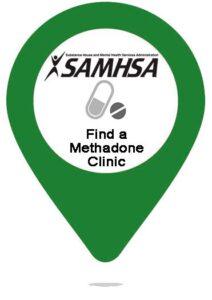If you are willing to seek help to break an addiction to opioids, consider a methadone maintenance program. These programs are proven to be an effective medication for the treatment of opiate addiction. Methadone isn’t a quick fix, but it might allow you the peace and stability you need to get your life back on the right track.
Methadone is in a class of medications called opiate (narcotic) analgesics. Methadone works to treat opiate dependency by preventing withdrawal symptoms and lessening cravings in people who have stopped using these drugs. Some people question why you should even take methadone when trying to detox from drugs. Isn’t is just trading one drug for another? Not at all.
Once you have been stabilized on methadone, you trade dependence to a dangerous opiate (heroin) for a dependence on a medically-supervised and safe drug (methadone). While you are in methadone maintenance treatment, you will need to take methadone at regular intervals to avoid withdrawal symptoms, just as a diabetic is dependent on insulin, but you do not experience the compulsive thoughts and behaviors that define addiction. When you were addicted to heroin, heroin defined your life and ended your ability to make good healthy choices — but once you enter methadone maintenance treatment, you are back in the driver’s seat.
Methadone Maintenance Facts
- Methadone was originally produced by German scientists in the 1930’s. The production of methadone happened as the scientists were trying to develop a pain reliever with less addictive properties than morphine
- Methadone suppresses your need for opioid drugs and it also helps reduce painful withdrawal symptoms
- Studies have shown that long-term methadone treatment results in:
- Less criminal activity
- Improved family relationships
- Increased ability to hold employment
- If people stay on methadone for longer than two weeks, there is an 80 percent chance that they will stay with their methadone maintenance treatment for six months or longer
- The National Institute on Drug Abuse (NIDA) recommends a minimum of one year in methadone maintenance treatment for best outcomes
- People on higher doses of methadone stay in treatment for longer periods of time, and have better outcomes, than do people on minimal doses of methadone
- By law, methadone can only be dispensed through an opioid treatment program (OTP) certified by SAMHSA
If you’re addicted to opiates, a methadone clinic can provide ongoing medication maintenance to help you quit them. SAMSHA offers a directory of methadone maintenance clinics throughout the country.
Am I Eligible for Methadone Maintenance?
The first step in getting methadone maintenance is to get assessed by a methadone maintenance clinic. Methadone clinics are committed to providing the safe maintenance of methadone and are found all over the country. You can start by looking online for accredited clinics. The SAMSHA website offers a directory of methadone maintenance clinics throughout the country. An accredited provider in this directory must follow the best practice guidelines for opioid addiction treatments using methadone and maintain successful treatment outcomes under the SAMHSA’s monitoring system.
What Will the Assessment Entail?
In order to provide you with the best and safest treatment possible, you need to make sure that staff members have the most current and up-to-date information about you. You are likely going to have to give them your:
- Demographic information (age, sex, etc.)
- Medical history, including any diseases transmitted through sexual intercourse or through shared needles
- Psychiatric history, including mental health disorders such as anxiety, depression, and psychosis
- Risk assessment, including information about past or present thoughts of suicide or suicide attempts
- Past and current drug use, which may include a detailed report of the drugs that you have used in the last month up to one year
- History of withdrawal symptoms (experienced currently or in the past)
Try to remember that the staff members will be asking these questions to ensure your safety during treatment. The first 2 weeks of treatment are the most dangerous. If you are not completely honest about other drugs you are using, you could be placing yourself at risk.
It is especially important to be honest about your use of other central nervous system depressants, such as:
- Alcohol
- Other opiates
- Prescribed medications, such as benzodiazepines, barbiturates, and sleep medications (e.g., Ambien)
Remember, the staff members at methadone clinics are not there to judge you; they are there to help and they rely on your honesty to help you get the best results.
What Kind of Treatments do Methadone Clinics Provide?
Methadone clinics offer methadone treatments daily, dispensed by trained doctors and nurses who can give individuals the correct dosage. Usually, the dosage should be specific to each individual, but “most patients require a dose of 60-120 mg/day to achieve optimum therapeutic effects of methadone” (CDC).
Most methadone clinics also offer additional benefits such as counseling. The use of counseling and medication together to treat addiction are considered to be the most beneficial to patients overall. While methadone itself helps patients manage the symptoms of their addictions to opioids, counseling can help them change the way they think about themselves and their addictions. There are several different types of counseling and behavioral treatments available including cognitive-behavioral therapy, contingency management, group therapy, and family and relationships therapy.
Methadone clinics may also provide vocational counseling. This often helps individuals in a methadone maintenance program get back on their feet by aiding them in their job searches, resume building skills, and financial issues. The clinics also may offer legal help. Many people who attend treatment in methadone clinics need legal help for issues that they experienced as a result of their drug abuse and many clinics have trained staff members to help patients navigate these waters.
Is Treatment Voluntary?
Unless you are considered a risk to yourself or others and are referred to a 72-hour hold, your treatment is 100% voluntary. Methadone clinics will not provide you with methadone maintenance without your complete and voluntary informed consent.
Methadone Works, but It’s Not an Overnight Solution
Although methadone is sometimes used in a short-term detoxification protocol, methadone has shown its best results when used as a long-term maintenance medication for opiate addiction.
Methadone withdrawal can be difficult, but the medication works very well to keep you stable and free from drug cravings as you rebuild the infrastructure of your life.
Eventually, most people feel stronger and ready to slowly taper down off of methadone, but some people continue to use the drug for many years, or even for life. Methadone maintenance treatment is not a “quick fix,” but it does offer the opportunity to heal the scars of previous addiction and build a sober life.


